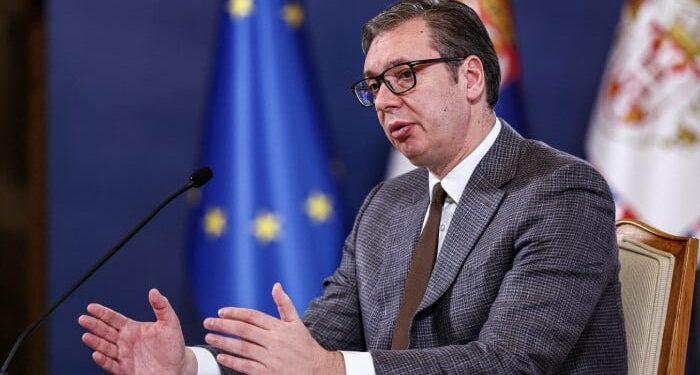The Struggle of Serbia’s EU Accession
Serbia’s President Aleksandar Vucic recently expressed doubts about the‍ country’s prospects for joining the European Union within the next decade. During a speech at the Globsec security conference in Prague, Vucic stated that he does not foresee Serbia becoming an EU member by 2028 and suggested that even by 2030, membership may still be out of reach. While acknowledging that this is his personal assessment, he emphasized the uncertainty surrounding the timeline for accession.
One of the major obstacles standing in Serbia’s path to EU membership is its need to demonstrate significant improvements in areas such as democracy, rule of law, judiciary, and economy. Additionally, addressing corruption and organized crime is essential for progress towards accession.
Despite its aspirations for EU membership, Serbia has maintained close ties with Russia and remains reliant on Moscow for gas. Furthermore, it has received support from Russia regarding Kosovo’s independence. On a different note, Serbia has publicly opposed Russia’s invasion of Ukraine and even provided artillery to Kyiv.
In order to move forward with its journey towards joining the EU, Serbia will have to align its foreign policies with those mandated by the EU—this includes imposing sanctions on Russia when necessary as well as making other required adjustments.











